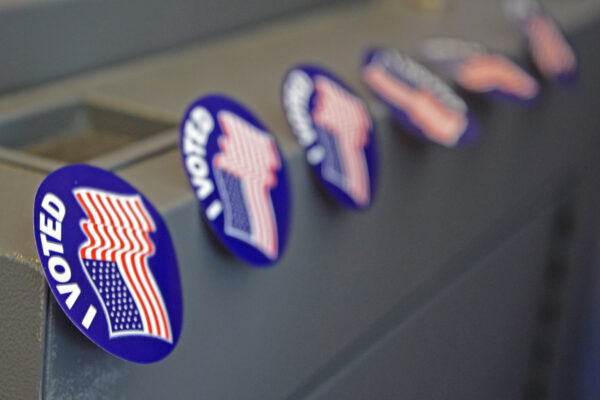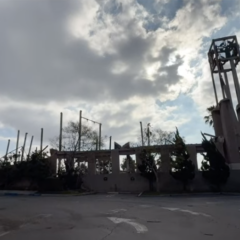Each election season brings questions about the role of religion in politics and the separation of church and state. In 2016, the presidential campaign also has introduced questions about the importance of the personal morality of candidates.
KPCC’s AirTalk invited Brie Loskota to discuss how local congregations were talking about the 2016 election, with callers sharing their experiences in churches, synagogues, mosques and even non-religious gatherings. Congregations exist, Loskota said, “so that they can make real the morality that is behind the theology that they believe.”
Loskota shared her observations after participating in a half-day seminar on Muslim political engagement at the Islamic Society of Orange County in Garden Grove:
There were a lot of questions from the congregants on how to make political choices and things that ought to guide their decision making. And that’s where their religious leaders came in to give them a moral framework for making choices that were resonant of how the Islamic society sees itself. There were a couple of specific ballot measures that people were interested in, especially 64 on Marijuana, which I think was really interesting because of the tension between legalization and issues of justice for people who have been incarcerated. I thought that was a really interesting discussion to have in the context of a congregation. I heard the same from one of my colleagues who is a rabbi that Prop 64 actually came up in her congregation as well and there was a lot of debate – friendly and civil debate – which I think is a wonderful function that congregations play in our political atmosphere that there can be places where people can engage in questions of meaning and morality and real concrete issues without becoming so vitriolic like we see in the pundit world.
She also spoke of trends CRCC is seeing in its research, such as the “blending of social justice and evangelical,” which particularly appeals to “younger millennial evangelicals who have not found a place for themselves politically and are looking for something beyond the two-party system.” This group is interested in living out their faith in their local neighborhoods.
Loskota spoke of the difference between the national conversation around presidential politics and local issues in ballot initiatives:
Certainty people have trouble disagreeing in ways that are civil, and that’s been amplified by this election in particular. I think that if we get off the conversation around presidential politics, and look at some of the ballot initiatives, there’s actually been a lot of creative engagement of congregations on those. For example, on Prop 57 on juvenile justice, there’s actually been a lot community organizing groups that use congregations as their base to engage in that question without revealing the riffs in society that you see amplified by Trump-Clinton debate. I think that leads us to some hope that we haven’t completely lost our ability to have conversations and sometimes when we find the less contentious issues to talk about and the ones that highlight some basic moral principles, they can be debated and actualized differently, but they don’t have the level of hostility that sometimes the personality-drive conflicts do.
The church-state line is not the only reason that some congregations do not touch politics. Dealing with tensions and divisions within the community can also dissuade faith leaders from taking a definite stand on political issues and elections, Loskota said:
There’s a lot of tension in congregational life in general because … they have to put a boundary of what they believe and what they don’t believe, and yet create an environment where they can manage a lot of diversity, whether that diversity is life experience, political view, and even around the contours of their theology. And that can sometime dissuade leaders from engaging in politics because it put stressors on the diversity. And if they don’t feel as though there’s something common that they can call people to, it can also create division that they have to deal with after the election. So we hear a lot of religious leaders who make appeals to their morality or make appeals to the duty to engage in politics or voting as something that is sacred or that is upheld as a moral virtue without making overt comments about which direction they should those calls.
Click here to listen to the whole segment.
Photo Credit: KOMUnews / Flickr




